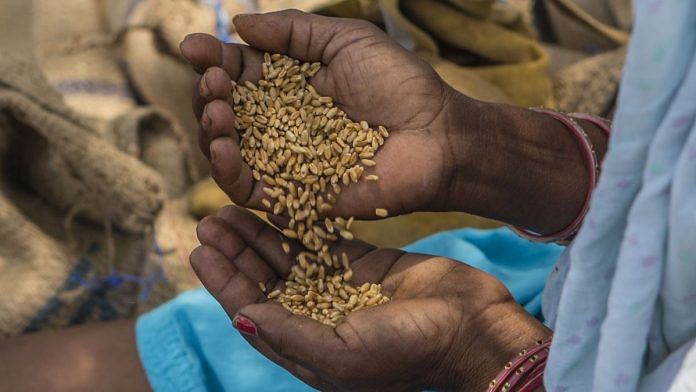New Delhi: Migrant workers often need their day’s income for food and consumer goods and the Covid-19 crisis has hit them hard.
Recently, the Bandra station in Mumbai was flooded by thousands of migrant workers who were trying to go back home. Visuals had earlier appeared of migrant workers walking on highways to reach home.
A lot has to be done to help the country’s poor, but at the least they should be fed. Nobel laureates Amartya Sen and Abhijit Banerjee along with former RBI governor Raghuram Rajan have written an article in The Indian Express on the Covid-19 crisis in India and suggested using India’s food grain stock to feed the poor.
Aadhaar can be used for direct benefit transfer to help out the poor, but in addition to that the government can use the surplus food it has in storage.
The government did announce a decision along these lines to distribute five kgs of grain and one kg of pulses in addition to the usual ration that card holders receive every month. Following this, the Railways also carried 16 million tonnes of extra grain in the first 12 days of the extra grain distribution. However, a lot of people in India do not have ration cards. Perhaps a temporary card can be given to them.
Also read: ‘Solely dependent on ration’ but Lucknow’s poor yet to get the promised free grains, pulses
FCI & excess grains
The Food Corporation of India (FCI) has 3.09 million tonnes of wheat, 2.75 million tonnes of rice & 2.87 million tonnes of paddy as of March. This is three times the amount of buffer stock than India needs.
The output of the Rabi harvest this year is supposed to be high and India’s largest producer, Punjab, does not have any space to store the grains. India cannot even sell these grains as international prices are lower.
Excess grain is a liability not an asset. India must use the Covid-19 crisis to get rid of these grains. They must be distributed so that our storage capacities do not get overloaded.
Moreover, if the government purchases these grains from FCI, it can repay its debt to public sector banks. Government will not only distribute money to the poor, but it will also get rid of bad debt.
Watch the latest episode of CTC:
Also read: Not enough grains to manufacture atta, maida, sooji as lockdown hits supply chain




Loved the article!